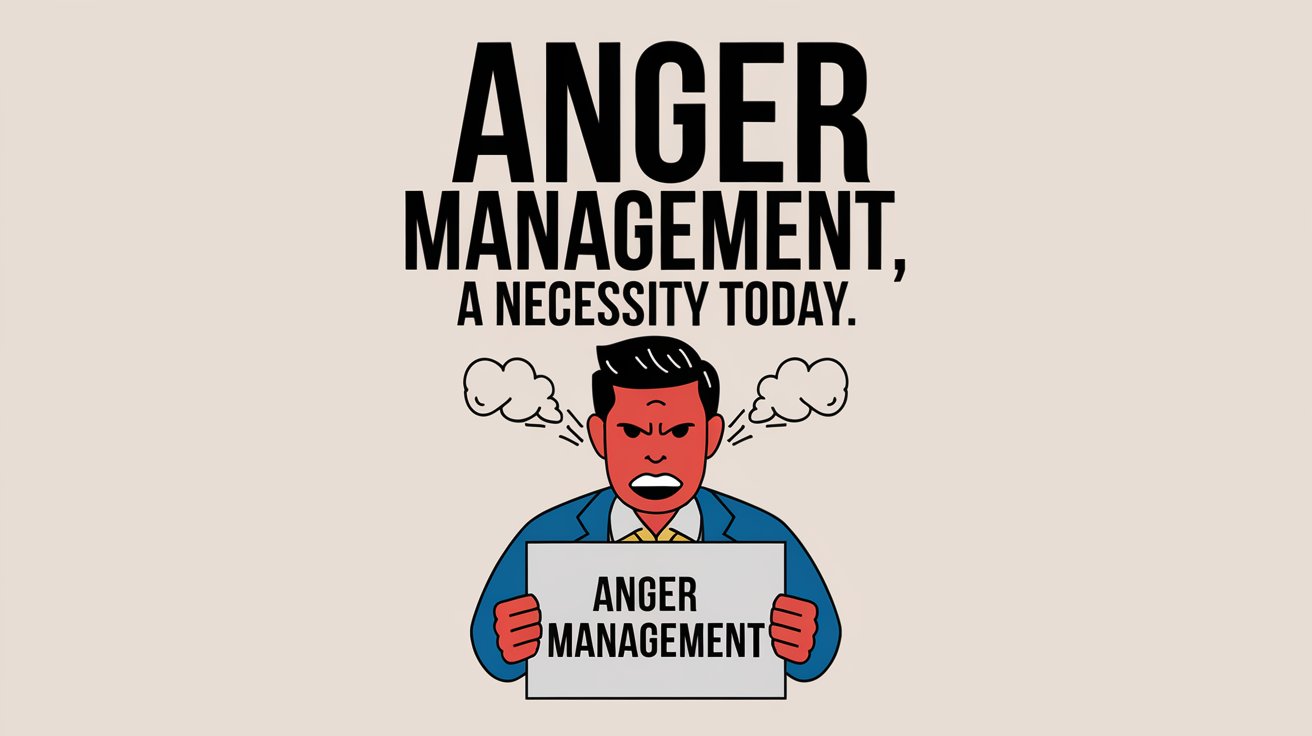
Anger Management: A Necessity Today
In today’s fast-paced world, stress and frustration have become an inevitable part of life. Whether it is workplace pressure, personal conflicts, or societal challenges, people often find themselves struggling with emotions, particularly anger. While anger is a natural human response to injustice, frustration, or disappointment, unmanaged anger can have severe consequences on both mental and physical well-being. This makes anger management not just a skill but a necessity in today’s world.
Understanding Anger
Anger is an emotional response that arises when an individual perceives a threat, injustice, or personal boundary being crossed. While it can sometimes be beneficial in driving change or standing up for oneself, excessive or uncontrolled anger can lead to destructive outcomes such as damaged relationships, professional setbacks, and even health issues like hypertension, heart disease, and anxiety disorders.
Why Anger Management is Essential Today
- Increased Stress Levels – Modern life is filled with deadlines, responsibilities, and social pressures. When stress accumulates, it can manifest as anger, leading to irrational reactions and conflicts.
- Strained Relationships – Uncontrolled anger can ruin personal and professional relationships. It can lead to misunderstandings, resentment, and emotional distance.
- Health Implications – Studies have shown that chronic anger can weaken the immune system, increase blood pressure, and contribute to heart diseases.
- Negative Social Impact – With the rise of social media and digital communication, anger often spreads like wildfire, leading to online harassment, hate speech, and toxic environments.
- Workplace Productivity – A hostile work environment due to anger-related issues can affect teamwork, creativity, and overall productivity.
Effective Anger Management Strategies
- Identify Triggers – Recognizing what makes you angry helps in addressing the root cause. Keeping a journal or noting patterns can be beneficial.
- Practice Deep Breathing and Meditation – Breathing exercises and mindfulness techniques help calm the mind and control emotional impulses.
- Use the ‘Pause’ Technique – Before reacting in anger, count to ten or take a short break. This allows logical thinking to take over emotional outbursts.
- Communicate Assertively, Not Aggressively – Express your feelings in a calm and constructive manner rather than through yelling or harsh words.
- Exercise Regularly – Physical activity is a great way to release built-up frustration and stress.
- Seek Professional Help if Needed – Therapy or anger management programs can provide techniques and support for better emotional regulation.
Conclusion
In a world where emotional well-being is crucial for personal and professional success, managing anger effectively is a necessity, not a luxury. By practicing self-awareness, adopting healthy coping strategies, and seeking help when needed, individuals can transform their anger into a constructive force rather than a destructive one. After all, a calm mind leads to better decisions, healthier relationships, and a more peaceful life.
 Sign In With Google
Sign In With Google
Leave A Comment